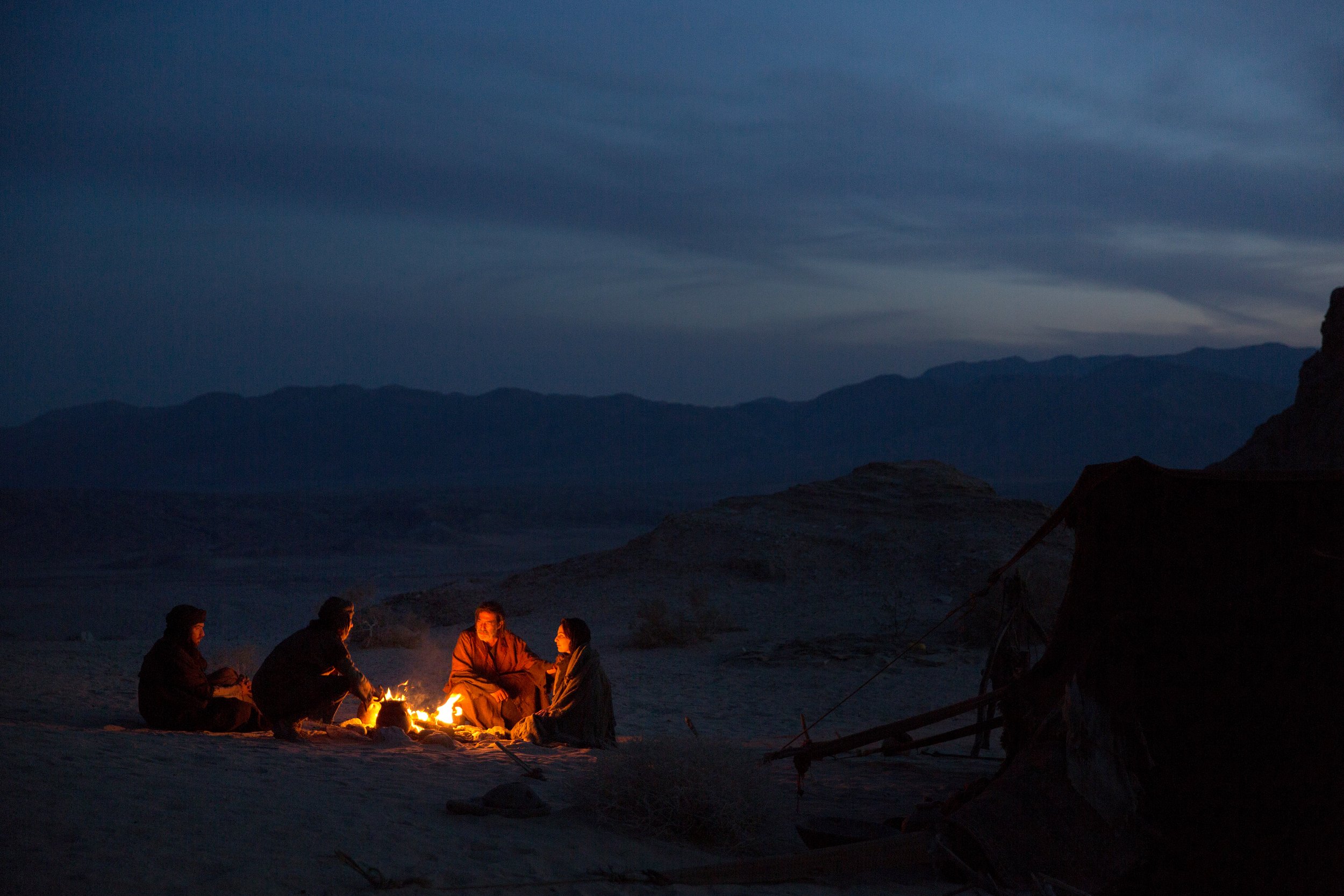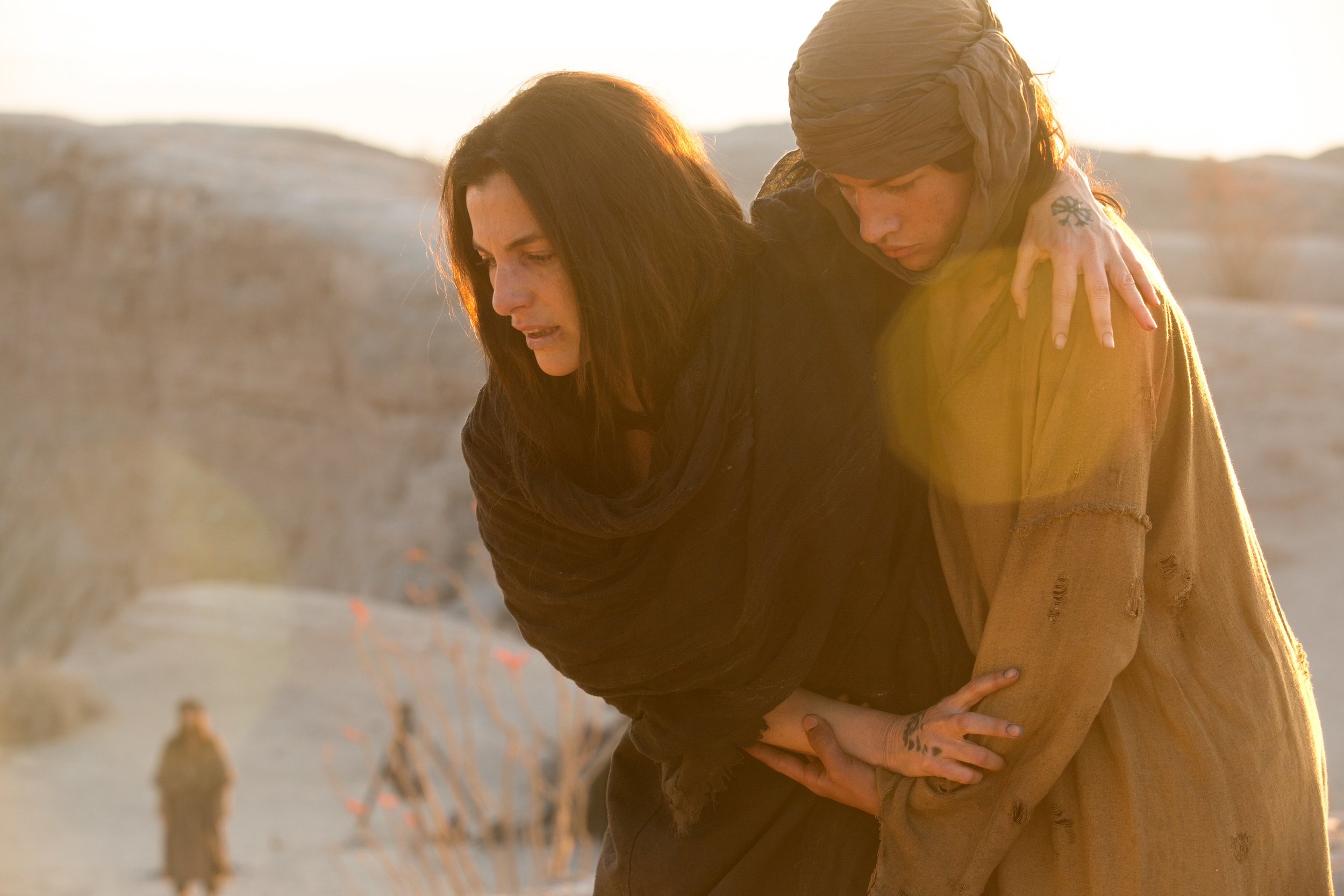Rodrigo García
Last Days in the Desert, Rodrigo García (2016)
Son of Nobel-prize winning Colombian writer Gabriel García Márquez, Rodrigo García is a screenwriter, film director and former cinematographer known best for his debut feature Things You Can Tell Just By Looking At Her (Cannes Un Certain Regard 2000), Nine Lives (Golden Leopard for Best Film at Locarno 2005), Mother and Daughter (Toronto 2009), Albert Nobbs (Toronto 2011) and his work on television series Six Feet Under and In Treatment.
His newest film Last Days in the Desert premiered at Sundance this year: a stripped-down, imagined three days of Jesus in the desert before the start of his ministry. The film stars Ewan McGregor, along with Tye Sheridan, Ciarán Hinds and Ayelet Zurer as a family he encounters along the way. On the eve of its New York release, Filmatique conducted an exclusive interview with Rodrigo García.
//
FILMATIQUE: You have received many accolades for your films depicting strong female characters. What motivated your shift to a father-son allegory?
RODRIGO GARCÍA: I think what motivated me was this idea... I don't know where it came from— the idea of Jesus coming out of the desert after his meditation and not feeling 100% up to the task ahead of him. That he would get engaged in the problems of a father and son in the desert. That was the idea that immediately intrigued me. I had never done or considered doing a movie about Jesus: a Biblical movie. But the story stayed with me and I welcomed the idea and the opportunity to work with men— with fathers and sons— and with a story set in antiquity with some supernatural elements. That seems like a very big change for me but the themes and the idea stayed with me a long time, so I just kept working on it.
Last Days in the Desert, Rodrigo García (2016)
FLMTQ: Last Days in the Desert seems to privilege the human life of Yeshua. Would you agree with this assessment? Do you consider it a religious film?
RG: I don't think it's strictly speaking a religious film. I think if Jesus is in your film, your film in many ways must be about Jesus. There's no way to hide from it. It is, of course, a fiction— an invented three days in the life of Jesus but his origins and his destiny and his circumstances beyond those three days must be taken into account. So you have to incorporate some religious ideas into your story.
However, I absolutely did concentrate quite consciously on the human side of Jesus. I don't know what the divine side looks like, talks like, thinks like or feels like. That's not something we can wrap our mortal minds around. So I thought, just let me concentrate on the human side of Jesus. And as with any character, I asked myself the questions: how am I like him? How am I like her? How are we the same? And I don't ask this in a pretentious way— but just as a writer trying to wrap my head around what it was like for the human side of this person to be in those circumstances.
Last Days in the Desert, Rodrigo García (2016)
FLMTQ: What attracted you to this specific chapter in Yeshua's life? What challenges did you face in approaching one of the world's most iconic stories from a non-canonical perspective?
RG: The fact that it was just that bubble, those three days between what is arguably Jesus' last preparation. His sojourn in the desert are the last days of fasting and praying before embarking on the big adventure of his ministry. I thought it would be interesting to see him just before the ministry began.
And the challenges— well, the challenges are what you can expect. I started writing the script and writing him as Jesus, and the stature of the name was too overwhelming. It was paralyzing. So after a while I changed it to the Hebrew form: Yeshua. And that gave me a little distance and sort of grounded the character for me a bit, made him a little more human.
It is daunting working with a character like this, but it's been done in so many ways, everything from musicals to more radical points of view like The Last Temptation of Christ. There are very different versions: Zeffirelli, Mel Gibson... Everyone has a different approach so in some ways it's daunting, and in some ways you have the freedom to take your own look at it.
Both Ewan and I read a lot of books about Jesus and no two were the same. Among the movies that I liked were Pasolini's Passion, and he was a Communist and gay. I don't think you have to have a particular identity to try to explore one of the most remarkable lives that have influenced the world.
Last Days in the Desert, Rodrigo García (2016)
FLMTQ: Both Yeshua, and the family he encounters, remark often on the ruthless landscape of the desert. How did you seek to capture this feeling of struggle and isolation?
RG: The desert I thought was a perfect setting for this. Deserts are always both incredibly welcoming and beautiful— they're mysterious and you really feel that you're in time, that you can be in an environment that has not changed for thousands of years and will not change for thousands of years. It gives you a sense of universe.
On the other hand, deserts are also very ruthless and very hard. It's hard to find food, and there's hardly any water and it can kill you. The desert doesn't care for you. So that dual nature of the desert is something that inspires the spiritual— there's something sublime, and on the other hand something just deadly and ruthless. I thought it was a very interesting setting for this group of men trying to find their place in the world.
FLMTQ: A vein of minimalism, both narrative and aesthetic, runs throughout the film. What is your relationship with minimalism?
RG: I like minimalism. I like the kind of story that tries to reach a boiling point without blowing up bridges, without superheroes or invading Poland or killing animals. I like movies that manage to do a lot in tiny settings. Tiny settings can be extremely dramatic.
Recent movies like [Michael Haneke's] Amour, which is about aging— very simple and extremely powerful, with very complicated themes. Or a movie like [Nuri Bilge Ceylan's] Winter's Sleep: three people who live and run a hotel, and their lives— it's Bergmanian and Chekhovian with good strong conflicts in a very simple setting and very powerful. So I am tempted. I am always allured by subject matter that is bare bones and simple but that hopefully has an emotional wallop.
Last Days in the Desert, Rodrigo García (2016)





